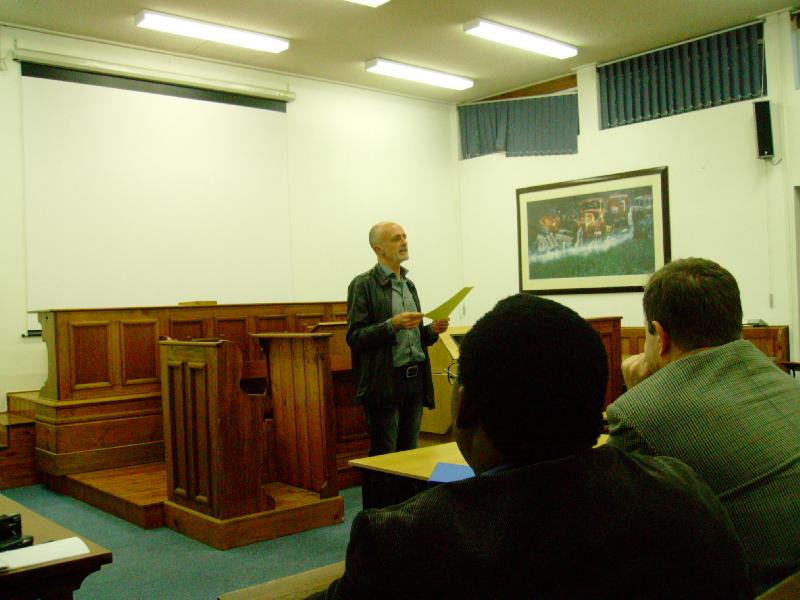
Tuesday night saw esteemed legal theorist Advocate Wim Trengove grace the stage, in this case the Law Department’s Moot Room, and eloquently provide clarity and insight into what is currently the most controversial issue in South African law.
Media Freedom versus The Law of Defamation was the talk’s topic, and the speaker delved into the finer points of the balance struck by our Common Law with regard to freedom of expression and freedom of information on one hand, and individuals’ rights to dignity and protection from defamation on the other.
Advocate Trengove went on to discuss the ANC’s controversial plans to introduce a Statutory Tribunal to regulate the media. He also cited several shortfalls with the Common Law as it stands. To highlight these problems he recalled relevant cases and precedents. He proceeded to propose solutions and improvements to current legislation.
The Common Law currently provides a single remedy for defamation: an award of damages. This crude all-or-nothing approach is ineffectual for several reasons. It is unfair on the media because the risk of being sued for damages for negligent reporting is sufficiently high to limit media freedom.
Trengove cited the example of a small Afrikaans newspaper, Vrye Weekblad, which was a fierce opponent of Apartheid and published what turned out to be defamatory statements on a high ranking official of the Apartheid Police. The resulting legal action, in which the plaintiff was victorious, effectively bankrupted the paper, thus ending its contribution to the Liberation Struggle.
It is also unfair on individuals who have been defamed because a wealthy defendant can simply buy off the claim, leaving the plaintiff’s reputation in tatters. The fact that defamation cases can take several years before going to trial means that, even if a plaintiff is awarded damages, his or her reputation is again injured by the courts’ rehashing of old scandals. With the current system, a plaintiff’s reputation is not necessarily uplifted by a legal victory as media houses are often reluctant to publicise their own defeats.
A subtler and more nuanced balance needs to be found to comply with our enlightened constitution, which states that neither of these oppositional rights must be impinged upon more than is necessary to protect the other. Trengove’s suggestions for improvements to the legislation include the provision of other remedies to wrongful defamation.
Plaintiffs should be able to appeal to have a declaratory statement issued which would clarify that the damaging statement was in fact untrue. Newspapers and other media entities should also be made to issue a retraction of any untruthful statement alongside an apology to the parties concerned. Any newspaper or broadcaster which acts in good faith should be happy to comply with this.
Trengove agrees with the ANC that the current judicial remedy for defamation is both slow and ineffective but argues that the answer lies in reformation of laws rather than the proposed Statutory Tribunal. The ANC’s proposal seems ominous, he said, because it will effectively take such matters out of the courts’ hands.
